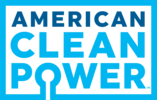Meldung von American Clean Power Association (ACP)
Zum Branchenprofil von
25.10.2012
Success of tax credit and new more affordable U.S.-built technology helping drive strongest year yet for U.S. wind energy
Factors for the strong year so far include:
The PTC incentivizes over $15 billion a year in private investment in U.S. wind farms. It currently is set to expire on Dec. 31. A proposal to extend the tax credit for projects that start construction next year won bipartisan support from the Senate Finance Committee on Aug. 2, as part of an overall “tax extenders” package. It now awaits action by the full Congress, expected in its lame duck session after the election.
“We have the bipartisan support to get the job done,” Bode said, “but it is up to Congress to bring it to a vote or else lose 37,000 jobs by the first quarter of next year.” That is what Navigant Consulting has forecast will be the job loss if the PTC is not extended. Thousands of layoffs have already begun in wind energy measurement, development, and U.S. manufacturing, even as the construction sector remains busy on this year’s projects.
The third quarter saw 1,833 MW of new installations, putting total U.S. wind capacity at 51,628 MW on Oct. 1. Over 40,000 wind turbines across the U.S. can now produce enough electricity to power the equivalent of all the homes in Michigan, Ohio, Iowa, Colorado, and Nevada combined.
The year-to-date total stood at 4,728 MW at the end of the quarter, up 40 percent from the same point in 2011. The average turbine size installed throughout the year continues to hover around 2.0 MW.
Credentialed media can obtain a copy of the third-quarter results by contacting Matt Englehart at matt@singerbonjean.com. A full version of the Third Quarter 2012 Market Report is available on the AWEA Member Center, accessible by logging on. A limited version of the report is available publicly at www.awea.org in the Industry Statistics section here. Questions on the market reports or industry statistics can be directed to statistics@awea.org.
Sign up to advocate for wind energy and see bipartisan endorsements of the Production Tax Credit at www.saveusawindjobs.com.
- Greatly expanded U.S. manufacturing, which now makes up to nearly 70 percent of the value of U.S.-installed equipment, cutting transportation costs
- Technological advances, such as higher towers and longer blades, which make turbines more efficient and further drive down costs
- The fact that more electric utilities are locking in 20- to 25-year contracts for lower-priced wind power, to the benefit of their consumers
- The federal Production Tax Credit for renewable energy, which has been kept continuously in place since 2005 and currently extends to the end of the year
The PTC incentivizes over $15 billion a year in private investment in U.S. wind farms. It currently is set to expire on Dec. 31. A proposal to extend the tax credit for projects that start construction next year won bipartisan support from the Senate Finance Committee on Aug. 2, as part of an overall “tax extenders” package. It now awaits action by the full Congress, expected in its lame duck session after the election.
“We have the bipartisan support to get the job done,” Bode said, “but it is up to Congress to bring it to a vote or else lose 37,000 jobs by the first quarter of next year.” That is what Navigant Consulting has forecast will be the job loss if the PTC is not extended. Thousands of layoffs have already begun in wind energy measurement, development, and U.S. manufacturing, even as the construction sector remains busy on this year’s projects.
The third quarter saw 1,833 MW of new installations, putting total U.S. wind capacity at 51,628 MW on Oct. 1. Over 40,000 wind turbines across the U.S. can now produce enough electricity to power the equivalent of all the homes in Michigan, Ohio, Iowa, Colorado, and Nevada combined.
The year-to-date total stood at 4,728 MW at the end of the quarter, up 40 percent from the same point in 2011. The average turbine size installed throughout the year continues to hover around 2.0 MW.
- Top states for installed new wind capacity during the third quarter include Kansas, on track to more than double the state’s wind capacity this year with 473 MW added; Oregon (333 MW); Texas (281 MW); Oklahoma (229 MW); and Nevada (152 MW).
- Nevada’s wind project was its first, making it the 39th state with utility-scale wind installations.
- Across 29 states and Puerto Rico, there are currently more than 8,430 MW under construction, a record for this time in the year.
- Texas leads the nation with 1,291 MW under construction, followed by California (1,022 MW); Kansas (836 MW); Oklahoma (734 MW); Iowa (597 MW); Colorado (496 MW); Illinois (480 MW) and Michigan (472 MW). In total, 10 states are on track to add at least 500 MW of wind this year with Texas, California, Kansas and Oklahoma on track to add over 1,000 MW each.
- Utilities are locking in more wind power on long-term contracts. Over 80 percent of the new capacity coming online or under construction is covered by a long-term power offtake agreement, either through a power purchase agreement between a utility and a wind developer, or through direct utility ownership. In fact, projects online through the third quarter and under construction are either owned by or have contracted power with 68 different utilities.
Credentialed media can obtain a copy of the third-quarter results by contacting Matt Englehart at matt@singerbonjean.com. A full version of the Third Quarter 2012 Market Report is available on the AWEA Member Center, accessible by logging on. A limited version of the report is available publicly at www.awea.org in the Industry Statistics section here. Questions on the market reports or industry statistics can be directed to statistics@awea.org.
Sign up to advocate for wind energy and see bipartisan endorsements of the Production Tax Credit at www.saveusawindjobs.com.
- Quelle:
- AWEA
- Autor:
- Ellen Carey
- Email:
- ecarey@awea.org
- Link:
- www.awea.org/...
- Windenergie Wiki:
- Turbine, MW











